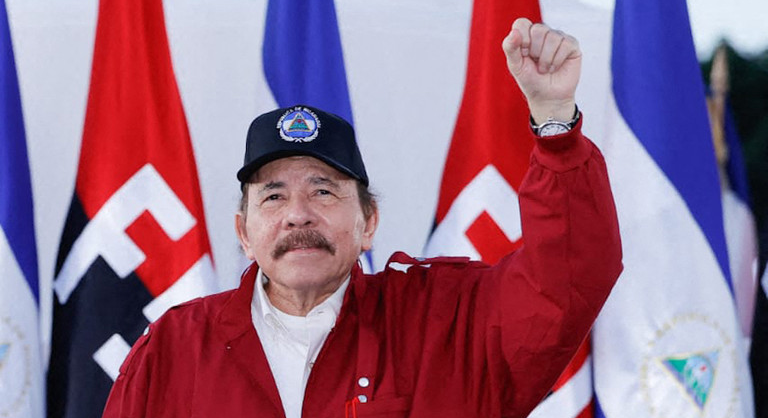
Managua, July 23 (RHC)-- This past week --commemorating the 44th anniversary of the Sandinista victory in Nicaragua -- President Daniel Ortega addressed a number of current events.
Referring to the recent meeting of EU-CELAC, which took place in Brussels, the Nicaraguan leader accused the Europeans of hurting CELEC by forcing it to adopt a statement in support of “fascist Nazi” Ukrainian President Vladimir Zelensky.
Speaking at the rally to celebrate July 19th victory over Somoza in 1979, Daniel Ortega lamented that the Brussels summit -- the first in many years attended by Managua -- had released a statement expressing “concern” about “the war against Ukraine” despite his country’s objections.
Accusing the EU of trying to “run Nicaragua in agreement with the United States,” he emphasized that his government “did not sign, approve or accompany what was announced, pompously and falsely, as the Declaration of Consensus of the III CELAC-European Union Summit.”
World is getting tired of Ukraine conflict – Brazil’s Lula
Read more World is getting tired of Ukraine conflict – Brazil’s Lula
Resolutions “have to be taken by consensus,” Ortega insisted. By not following procedure, the EU was “hurting CELAC.”
“At the European Community meeting with CELAC, where they wanted to put the fascist, the Nazi president of Ukraine at the meeting. The Europeans pressed hard, but most of the CELAC countries did not accept and could not stand for the fascist president of Ukraine,” Ortega said, adding that the EU’s efforts to introduce a line in the summit statement explicitly blaming Russia for the turmoil in Ukraine had been rebuffed.
“Logically, we could not accept this,” he explained, pointing out that “it didn’t make sense to put these issues on the agenda of the EU and CELAC.”
However, efforts to include a line in the statement calling for an end to the Western policy of aggression and sanctions against Cuba, Venezuela and Nicaragua were gutted, with Venezuela and Nicaragua removed. A call not to provide Ukraine with cluster munitions, which are banned in the EU, was also shot down, Ortega said.
Addressing thousands of young people who had assembled in Managua’s "Plaza de la Dignidad Nacional" to celebrate the anniversary of Nicaragua’s liberation, Ortega also praised slain Libyan leader Muammar Gaddafi, who was killed by NATO assets during the war that “destroyed” Libya in 2012. He said Gaddafi had “showed solidarity with Nicaragua” and “pushed for the unity of the Arab peoples.”

